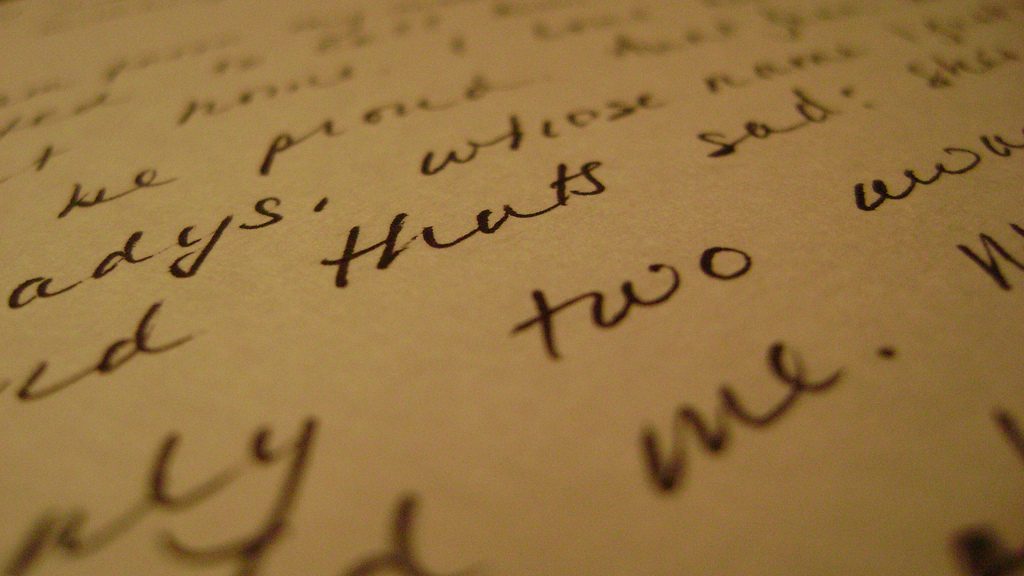Hello!
Writing can be a bit tricky. Some people may lack the confidence to express themselves. Others feel intimidated as their own perfectionism does not allow them to experiment. The thing is that writing is a creative activity that requires skills and confidence. The practice of freewriting can help you unlock your full potential.
What Is Freewriting?
 Freewriting is the practice of writing down anything that comes to mind. It is a good habit to practice daily. You are not limited by topic, form, or style restrictions. Freewriting pieces do not have to be long and flawless.
Freewriting is the practice of writing down anything that comes to mind. It is a good habit to practice daily. You are not limited by topic, form, or style restrictions. Freewriting pieces do not have to be long and flawless.
The same freedom applies to the time and duration of writing sessions. You may give yourself any amount of time to complete the task.
Some people prefer to practice first thing in the morning when others feel more comfortable working in the evening.
A stream of consciousness technique works well for freewriting activities. Yet, you can also use more structured storytelling. Anything that feels right will work. The main task is to get yourself to write.
The topics for freewriting exercises can be diverse. You may focus on events that have happened during the day, your feelings, dreams, or stories. It is up to you whether to prepare a topic beforehand or to determine it during freewriting sessions. You can start writing with the first idea or even a single word that crosses your mind.
 Before engaging in freewriting activities, be sure to work on your attitude. Think of freewriting as a routine that allows you to explore your creative side.
Before engaging in freewriting activities, be sure to work on your attitude. Think of freewriting as a routine that allows you to explore your creative side.
The result of this practice should not be judged or criticized. The goal of freewriting is to give vent to the flow of your ideas. Therefore, you should trust yourself and trust the process.
Benefits of Freewriting
Freewriting improves your well-being and helps to build skills. It serves as a source of inspiration, gives you courage, and teaches you how to think deeply. Let’s consider the most evident advantages of freewriting, namely creativity, confidence, enhanced writing skills, and self-reflection.
1. Creativity
 The act of writing freely sparks creativity as it gives space for experiments and exploration of your artistic side. When you work following the strict instructions of a particular task, you lose the chance to explore different approaches and perspectives.
The act of writing freely sparks creativity as it gives space for experiments and exploration of your artistic side. When you work following the strict instructions of a particular task, you lose the chance to explore different approaches and perspectives.
In contrast, freewriting allows going beyond rules and traditional practices, showing a way to unexpected inspiration.
Additionally, as you do not need to plan or outline your texts, you are free to write anything that is on your mind. Even if your only thought is, “I do not know what to write,” this is exactly what you need to jot down.
The hardest part is to start. Yet, once you have opened a notebook or word processor and written your first sentence, ideas will come to you.
2. Confidence
 Freewriting does not have to be perfect. This is what makes it so liberating. Jotting down your thoughts freely, you get rid of the fear of the blank page. It lifts the so-called writer’s block as you can work with rough and fuzzy ideas. It helps to overcome the worry of writing something wrong or unusable.
Freewriting does not have to be perfect. This is what makes it so liberating. Jotting down your thoughts freely, you get rid of the fear of the blank page. It lifts the so-called writer’s block as you can work with rough and fuzzy ideas. It helps to overcome the worry of writing something wrong or unusable.
As the study conducted by Jeongyeon Park has concluded, freewriting decreases anxiety and improves the quality of writing. All study participants have reached better performance due to increased confidence. Therefore, freewriting has the potential to encourage writing expression.
3. Enhanced Writing Skills
You can treat freewriting as a workout for your writing skills. Regular exercises will keep you in shape when you do not have other writing assignments to work on. You can start with short 10-minute freewriting sessions, working on ready-made prompts or your own ideas.
The task “write my essay” is no longer stressful for those who incorporate freewriting in their daily routine. They know how to approach an assignment and develop ideas.
 Freewriting can help you to cope with school assignments. It is a perfect way to gather everything you know on a certain topic. Besides, freewriting sets the right mood before working on assignments and helps you to produce ideas. You can use it as a warm-up activity, preparing to write an academic paper.
Freewriting can help you to cope with school assignments. It is a perfect way to gather everything you know on a certain topic. Besides, freewriting sets the right mood before working on assignments and helps you to produce ideas. You can use it as a warm-up activity, preparing to write an academic paper.
4. Self-Reflection
Freewriting can become a meditative experience. It allows you to write your thoughts without any stress. You do not have to worry about formatting, style, or grammar. Your text will not be graded or even seen by other people. So, freewriting promotes honesty and provides you with a safe space to express yourself.
Writing down your feelings and thoughts allows you to reflect on your experience. You can work through emotional issues and accept yourself without judgment. The practice of freewriting can help you think as you can structure your ideas and figure out solutions to your concerns.
Also read:
- Improving Your Blog Content: How to Make Searchable and Shareable Titles
- 5 Tips to Master the Academic Tasks
- Women's Bodies Better Suited for the Horrors of Space, Study Finds
A Final Thought
 Freewriting is a perfect activity to experiment and try out new ideas. It imposes no limitations, supporting complete freedom of expression. Indeed, it is a useful habit to practice daily.
Freewriting is a perfect activity to experiment and try out new ideas. It imposes no limitations, supporting complete freedom of expression. Indeed, it is a useful habit to practice daily.
Freewriting helps you to become a better writer as it allows you to overcome writing anxiety and makes you more confident. We invite you to take a few minutes for yourself and write whatever comes naturally to empower your creativity.
Thank you!
Subscribe to our newsletter! Join us on social networks!
See you






